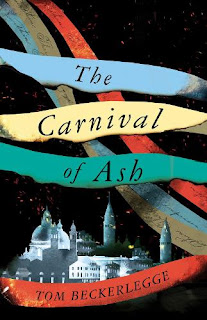This post contains affiliate links. If you click through and buy I will receive a percentage commission at no extra cost to you.
Evelyn Hugo has had a rollercoaster of a career, with smash hits and near career-ending moments aplenty. One thing that’s always remained, however, is people’s interest in her seven marriages. Now seventy-nine and having refused publicity for many years, she’s finally ready to tell the whole truth. What secrets will she reveal, and why has she chosen Monique Grant, an unknown journalist, to share her story?
Evelyn knows from a young age that she wants to make something of her life, and it soon becomes clear that her looks will help her get there if she’s willing to give men what they want from her. She has no problem using people to achieve her goals, and that includes her various husbands. Some of her marriages are more like good business deals, others genuinely based in love. The older she becomes the more she longs to be loved for the real Evelyn, not the construction she has created for the public. This wrestling with a desire for an extraordinary life and the opposing craving for privacy is played on often. She encourages co-stars to be seen on the arms of men they can’t stand for the headlines. She is calculated and ruthless but she is not shamed for it. There may be things she regrets, but her ambition is not portrayed as a failure as it so often is in a female character.
She is well aware of the power of her sex appeal yet also feels the shallowness of it. Her beauty is not a moral virtue but rather something she was born with. She finds it odd to be admired for something she didn’t achieve herself, and the more she is in the world of the Hollywood elite the more keenly she feels the difference between being desired and being loved.
You may expect from the title that this will be a book full of drama and heartache, and although this is true, a lot of it has nothing to do with the husbands. Really this is a love story, of Evelyn and her one true love, of loving someone the world would condemn you for, and the lengths you’d go to in order to protect it. This central love story is realistically drawn. Neither partner is perfect, and they allow their flaws and pride to tear them apart. Evelyn struggles to put her career second and it is a painful lesson to learn what she can lose. With time, she comes to reflect ‘You have worked so hard for a life so grand. And now all you want are the smallest freedoms. The daily peace of loving plainly.’ Will she be able to attain the quiet, loving life she craves?
We meet Evelyn when she is all alone, everyone she truly loved departed. Her story is all-consuming and it can be frustrating when the narrative cuts back to the present. The mystery of why she chose Monique hangs over these sections but it doesn’t feel as though you get enough time with her to really care. Monique learns some important lessons through her time with Evelyn, but in the early sections her story can be slightly muddling and always pales in comparison to Evelyn’s. The moment you realise what the reveal is going to be still sends shockwaves through you however.
An enthralling novel with such a compelling protagonist that you’ll forget she’s not real.





